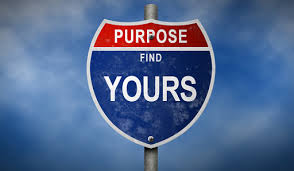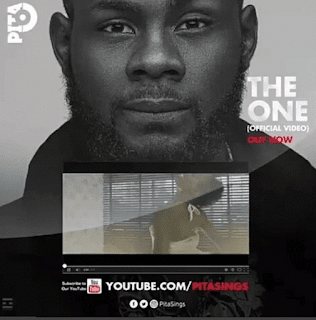Finding Your Purpose
Identifying Your Strengths and Going for Growth
I have asked many questions of successful people trying to discover, first, what made them successful, and second, what they think success is. And my hope is that in sharing my findings with you, they will help you along your journey toward reaching your full potential.
Knowing Your Purpose in Life Over the years as I have watched and listened to successful people, I have discovered a common thread: They know why they’re here. Knowing their purpose in life gives them stability. And when others around them start abandoning their causes and jumping ship when life gets tough, these people use this assurance to steady the boat, to ride out the storm because they have a true North Star. It becomes an anchor in their life—a confidence based upon knowledge of purpose. Someone once said there are two great days in life—the day you are born and the day you discover why. I’m here to tell you, highly successful people have discovered why.
Passion, the Great Energizer I think there are two paths we can take to discover our purpose. The first is passion. What are you passionate about? What do you really care about? What would you live for? What would you die for?1
Passion is not 100 percent foolproof, but it will get you into what I call the location, the area, the neighborhood of what your purpose really is. Passion is a wonderful thing; it’s what I call the great energizer. It’s no secret that passionate people have a lot of energy. That’s why when you see successful people, they are loving what they’re doing and they’re doing what they love. They never run out of energy and they can’t wait to get going. If you find a person who has passion, you find a person who has energy. Conversely, if you find a person who lacks passion, normally they will lack energy.
People who are highly successful love the journey as much as the destination. And even though they haven’t arrived at their goal, that doesn’t mean they’re discouraged; it just means that they’re still encouraged because they still have fuel in their tank, because they have this incredible amount of passion.
It’s also possible to be very passionate about something you’re not good at, and that’s not a good thing. If you don’t believe me, just watch the singing tryouts atAmerican Idol. Bless their hearts, these kids are extremely passionate about their singing but when the sound comes out of their mouths, it’s a train wreck. Everybody—the judges, the audience—is sitting there cringing, listening to this person who has great passion about what he or she is doing. Everybody knows it’s horrible. Everybody except the person singing.
Now when I see passionate people singing with all of the off-key gusto that they can muster, I always ask myself, where are their friends? Shouldn’t somebody step up and say, “ Excuse me, my friend, you don’t have what it takes.”
So passion can only get you so far. It will get you into the location but it’s only about 80 percent accurate. But the next path you take to discover your purpose is 100 percent accurate, I guarantee it.
Entering the Strength Zone The second path is what I call your Strength Zone Path. That’s not my phrase; it’s from Marcus Buckingham’s book Now, Discover Your Strengths. In other words, what you’ve got to do is find the path that enables you to answer the question: What do I do well? What are my strengths? What is my giftedness? What is the talent, the uniqueness that sets me apart from everybody else?
Everyone has a uniqueness about them that, if they could discover it, fine-tune it, work hard and grow in it, would set them apart. The Strength Zone Path takes your giftedness and talent and begins to lift you above the crowd. No one has ever been successful doing something that they didn’t like and no one has ever been successful doing something they can’t do well. And yet I see millions of people every day doing something they don’t like doing and they wonder why they’re not a success.
People Don’t Pay for Average Here is the best way I could explain it. People simply will not pay for average.1 They never have, they never will. In fact, what amazes me about America is we have fallen in love with being average. But what we need to wake up to is that being average has never caught anybody’s attention and made anybody go the extra mile. Being average has never helped anyone rise above the crowd. Average is average. But why are we so much in love with average? Think about it for a moment. After you come home from a hard day’s work, you don’t look at your signifi cant other and say, “Honey, we’ve worked hard today so let’s treat ourselves and go out to an average restaurant.”
"Being average has never caught anybody's attention and made anybody go the extra mile."
And when the hostess is about to seat you, you don’t say, “Oh, by the way we want an average table. Yes, the table overlooking the water is very beautiful but we’d really like a table where no one likes to sit. And last, could you send over an average waiter?”
And when the average waiter comes, you don’t say, “We don’t want to know what your specialties are. No, we don’t want to know what you’re good at. What’s average here? Do you have anything back in the kitchen nobody has ordered?”
You don’t go to an average restaurant, sit at an average table, have an average waiter, have an average meal, and walk out of that average place and say, “Sweetheart, what an experience. We must do this again next week!”
People don’t pay for average. So what makes one think they can have an average business or an average career or an average life and make a difference? Average doesn’t make a difference. Average is average.
Stop Working on Your Weaknesses Next, I’m going to tell you something that goes against all of the rules you have ever been taught or have ever believed about weaknesses. I know there may be some emotional resistance, but consider buying into this because it will set you free. From this moment on, stop working on your weaknesses. Why? Well, it’s very simple. It’s because we are weak in our weaknesses. Unlike the friends of bad American Idolcontestants, I’m going to tell you to quit doing something you’re not any good at.
Our education system has totally taught us to work on our weakness. If you got an A in math but a C in English, what did they tell you to work on? That’s right, English. They say, “Get that English grade up.”
I’m here to tell you, don’t work on your English. You say, “Why shouldn’t I work on my English?” It’s very simple. You have a math mind. It’s not that you’re dumb; it’s just that your math mind is better than your English mind. You’re better at numbers than you are at words. It’s not right or wrong; it’s just who you are. It’s your uniqueness. In fact, what you should do is thank God you got a C!
Tiger Woods Works on His Strengths I was with a group of CEOs and presidents not too long ago and I was talking to them about this whole process, and one of the presidents raised his hand and said, “John, I’m not sure I agree with you when you say not to work on your weaknesses. Take Tiger Woods for example. When he has a bad round of golf, he heads directly to the practice range and may spend two or three hours working on his swing—a perfect example of working on your weaknesses.”
I told this gentleman he just gave a perfect example of the importance of working on your strengths. I think it’s safe to say that Tiger Woods is the greatest golfer in the world. So when the greatest golfer in the world is working on his swing because he’s got a little flaw in it, he’s not working on weaknesses. He’s working on strengths. He’s in his Strength Zone working to improve his strengths.
The difference is when I go to the practice range, I’m in my weak zone. For me practice makes permanent. If you’re in your Strength Zone like Tiger, practice makes perfect. When I work on my golf swing, I consistently hit a bad shot to the same place every time, which is a big help because then I know where to find it in the woods.
What’s Your Growth Plan? Success is knowing your purpose in life. But there’s more to it than that; I know people who know their purpose in life but they’re not successful. You need a growth plan to help you reach your maximum potential. It’s not only knowing what you should do; it’s about growing in that area to maximize and highlight the things that you do well. That’s continual growth.
I had a life-changing experience back in 1973. Attending a seminar in Lancaster, Ohio, a man sitting next to me asked me one of the most important questions I’ve ever been asked. He said, “ John, what’s your plan for growth?” I was just a kid in my 20s, not knowing that I was even supposed to have a plan for growth. And so I decided to fake it and proceeded to tell him about my elaborate schedule and how hard I was working toward my goals. I was like a plane circling a field trying to come in for a landing, going around and around until I fi nally ran out of gas and shut up. As soon as I did he looked at me, smiled and said, “You don’t have a plan, do you?” With a smile I replied “Eh, no, no I don’t.”
Then he said words that changed my life. He said, “John, growth is not an automatic process. If you’re going to grow, you need to do so intentionally.” That afternoon I went home and sat down with my wife, Margaret, and said, “I don’t know what a growth plan looks like, but I heard a guy tell me today I needed to have one and I’m going to fi gure it out.” And I took that whole year to fi gure out how to do a growth plan, and I’m here to tell you, it changed my life.
That was in the early ’70s. For 30-plus years, I have been on a personal growth plan every year.
The speed of the leader determines the speed of the pack. And the only way that you and I will ever continue to be in front is to continue to learn, grow and make a commitment to it. Highly successful people have a continual thirst for knowledge and are always asking questions.
What You Do Today Determines Your Success I don’t think success is a mystery. I think it’s tangible and achievable for everyone, but it’s going to start with this statement: The secret of your success is determined by your daily agenda, by what you and I do—today.
I believe this principle so much I wrote a book called Today Matters, and in the book I write about how we over-exaggerate yesterday, we overestimate tomorrow and we underestimate today.
You see, every day you are either repairing or preparing. Every day you’re either trying to fix yesterday— relationships, issues, priorities, lost opportunities—or you are living your life in such a way that you are preparing for tomorrow and setting up success almost as a given.
Highly successful people know their purpose in life, they grow to their maximum potential and they sow seeds that benefit others. They don’t live for themselves. They’re a river, not a reservoir. They understand what significance is. Significance is adding valu to others.



Comments
Post a Comment